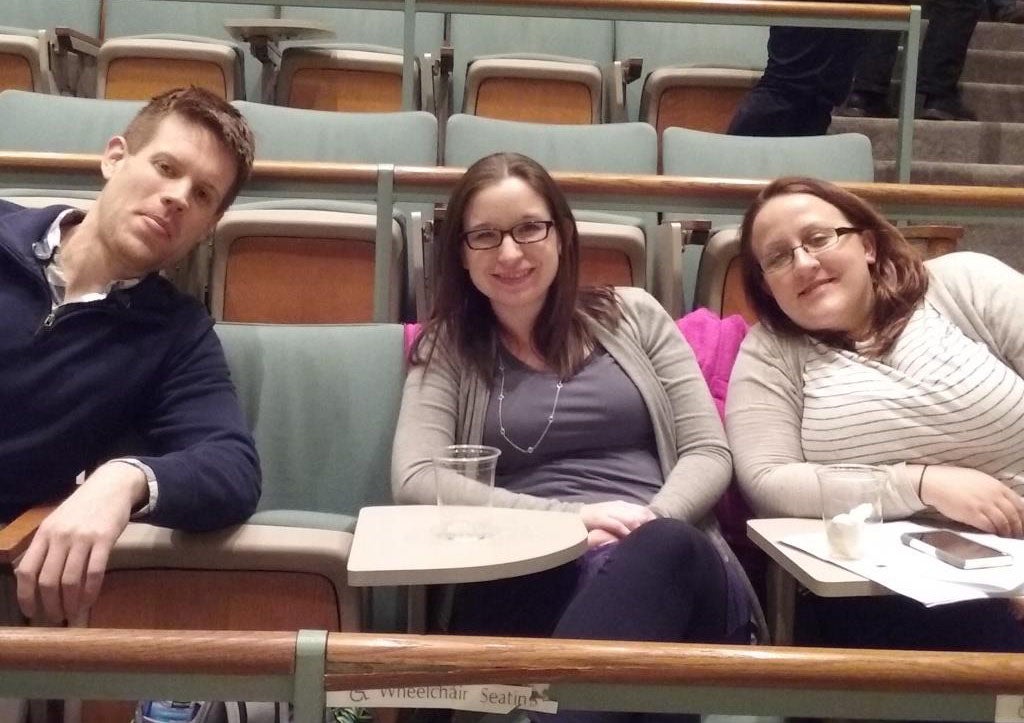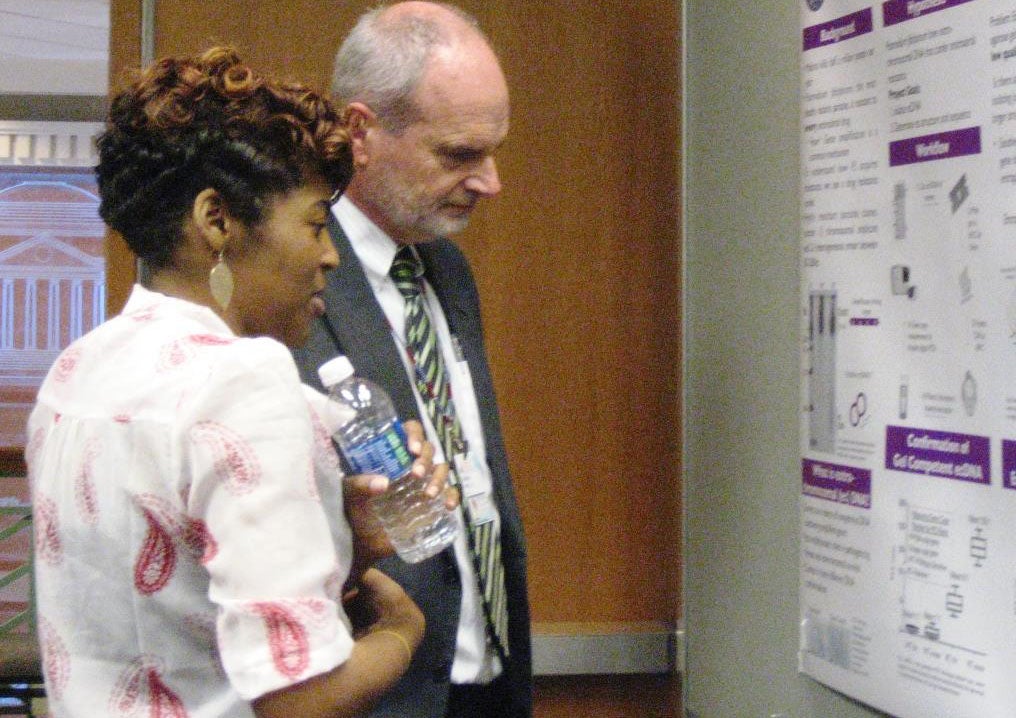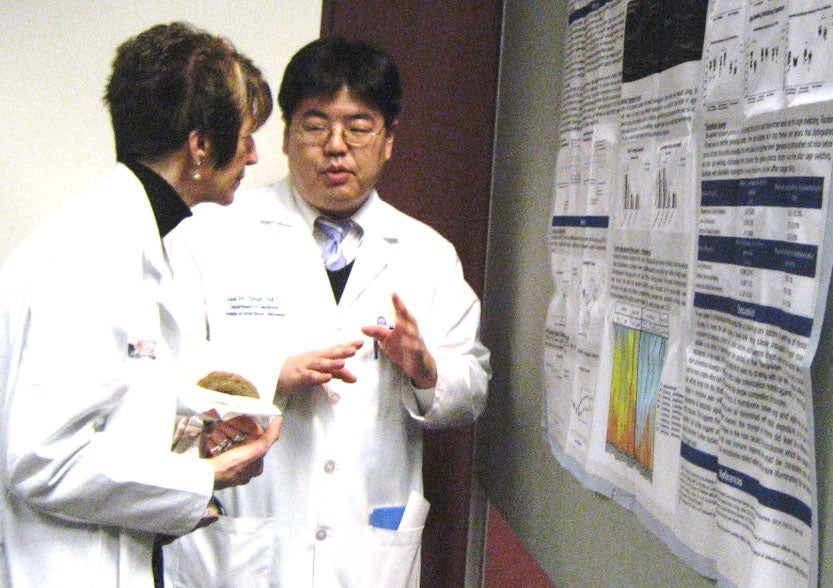(Scroll down for slideshow.)
ID & Biodefense Research Day 2017 was held on Monday, March 13th at Pinn Hall Conference Center. Organized by the Division of Infectious Diseases & International Health and sponsored jointly by the Infectious Diseases graduate program and the Biodefense Training Program, this annual event provides an opportunity for graduate students and research and clinical fellows in the ID and Biodefense graduate programs to share their research through a poster session and oral presentations, and receive feedback from faculty and peers.
This year’s keynote address, by Joanne Engel, MD, PhD, chief of the Division of Infectious Diseases and professor of medicine in the Department of Microbiology and Immunology at U.C. San Francisco, was on “Intracellular Pathogens As Master Cell Biologists:Understanding How Chlamydia Co-Opts Retromer-Dependent Trafficking To Survive Intracellularly.”
Chlamydia is a genus of pathogenic bacteria and a leading cause of human disease — one for which no vaccine exists. An important gap in knowledge is how this obligate intracellular parasite is able to survive and replicate in the hostile intracellular environment. Dr. Engel talked about her large-scale affinity purification/mass spectrometry studies to comprehensively identify protein-protein interactions between all C. trachomatis secreted effectors and the human proteome, and follow-up studies to delineate how Chlamydia modulates host cell vesicular trafficking.
At the end of the day, awards were given by ID division chief Bill Petri for oral and poster presentations. The winners were:
Oral talk
- Anita Cheruvanky, MD: “Accuracy of Cefepime susceptibility testing of Ceftriaxone non-susceptible Enterobacteriaceae by three methods”
- Allissia Gilmartin: “Inhibition of amoebic lysosomal acidification blocks amoebic trogocytosis and cell killing”
- Laura Gonyar, PhD: “Albumin and calcium elicit a massive increase in amount and release of Bordetella adenylate cyclase toxin”
- Adam Greene: “SPI-2-dependent accumulation of cholesterol by Salmonella typhimurium promotes intracellular survival in macrophages”
- Beth McKenney: “Three’s company: a multicopy sRNA modulates host-pathogen interactions”
Poster
- Jae Shin, MD: “Characterization of beneficial components in the fecal microbiota of young mice which improve mortality and enhance innate immune response in aged mice with Clostridium difficile infection”
- C.J. Anderson: “Ethanolamine signaling promotes vacuole adaptation by intracellular pathogens”
- Adam Huckaby: “Complex DNA structures trigger copy number variation across the Plasmodium genome”
Below is a slideshow from the 2017 event.
Filed Under: News and Notes





